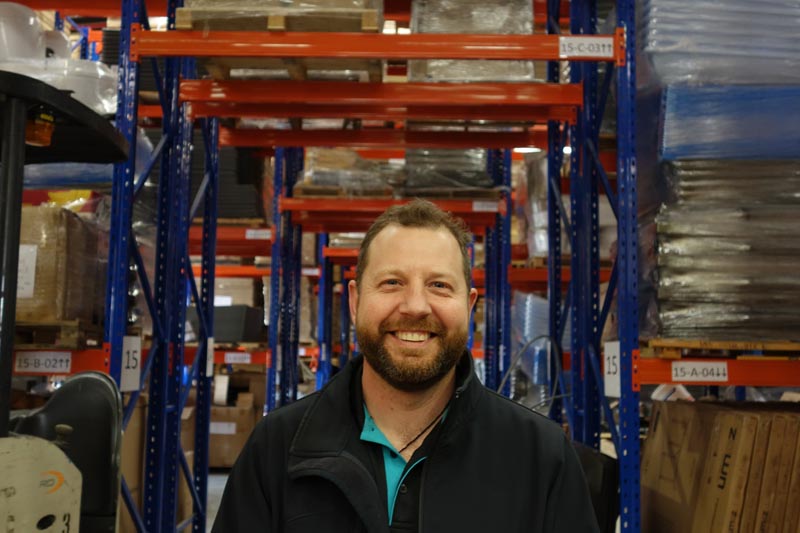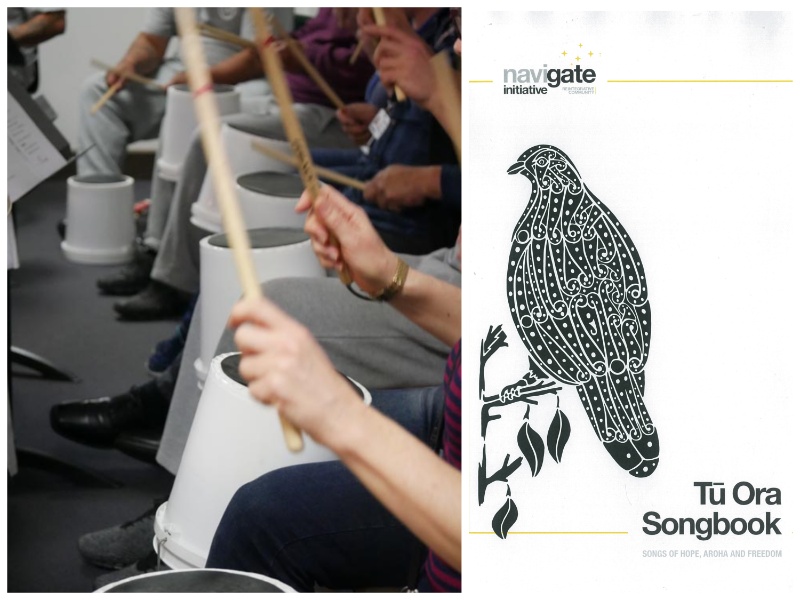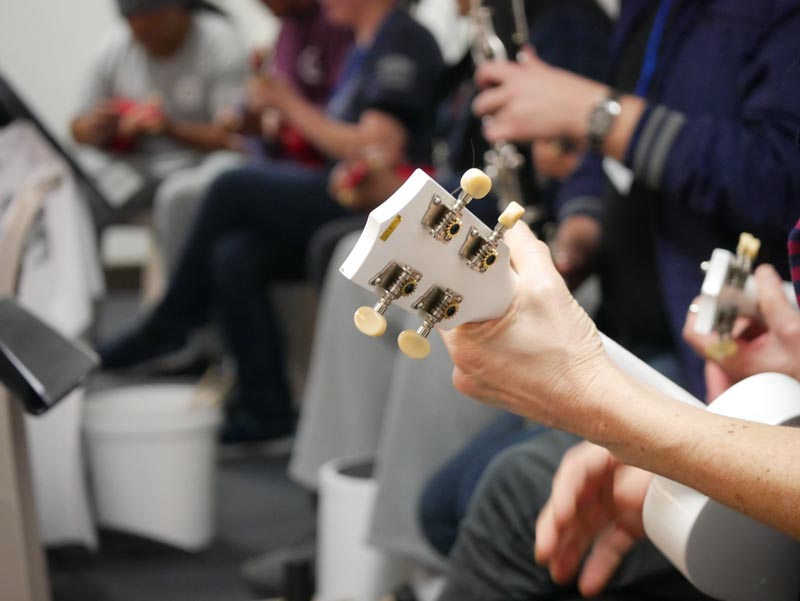Like so many of us, music has helped me transition through challenging and difficult circumstances. It’s hard to imagine a funeral, wedding, times of celebration, grief or hardship without music. For me, music is an emotional language. When words are not always enough to express something, there is likely a piece of music that is going to help me heal, feel and strengthen who I am through that experience.
 As the Reintegration Manager of Pathway Trust, I have found it hugely encouraging to see that this concept is proving just as true for the many men Pathway supports from prison into the community through its Navigate Initiative Programme at Christchurch Men’s Prison.
As the Reintegration Manager of Pathway Trust, I have found it hugely encouraging to see that this concept is proving just as true for the many men Pathway supports from prison into the community through its Navigate Initiative Programme at Christchurch Men’s Prison.
Since 2018, men in this community-led reintegration programme have been offered different forms of artistic expression with which to create, process, heal, transform and ultimately make sense of their life.
With the help of our well-established **Tū Ora (see explanation of the term later in this blog) writers group, music tutoring and weekly jam sessions, we collated various original compositions and lyrically adjusted cover songs into a songbook specific to the Navigate Initiative.
Generous response of high-calibre musicians
Previous projects with the Christchurch Symphony Orchestra (CSO) meant their high-calibre musicians responded generously to the idea of working with us to put together a performance of the songs. Over five weeks, members of the CSO volunteered a few hours on a Tuesday afternoon to augment a set list of songs about hope, aroha and freedom – the themes of the Tū Ora Songbook.
 In early April, 60 visitors – whānau and friends of our Tū Ora – were invited into the prison and treated to a performance of the Tū Ora Songbook including the wonderful musicianship of members of the CSO.
In early April, 60 visitors – whānau and friends of our Tū Ora – were invited into the prison and treated to a performance of the Tū Ora Songbook including the wonderful musicianship of members of the CSO.
The performance itself was a huge success and a wonderful experience for everyone. However, it’s the project’s positive impacts on the Tū Ora we support that has made me increasingly convinced of the deeper therapeutic gains.
Music therapy research highlights that playing or listening to music can increase motivation, self-esteem, socialisation and communication; reduce muscle tension and anxiety; improve self-awareness; and strengthen coping skills. All of these benefits are huge gains for any person facing challenges – not only those facing the daunting challenge of transitioning into the community from prison.
Struggle to verbalise feelings
We know that our prison population is over-represented in most areas of undiagnosed addiction, mental health and trauma-related issues. Research also suggests that people who experience and carry trauma often struggle to verbalise their feelings or describe specific damaging events.
 Music offers a powerful, alternative way for people to express themselves, interact with supporters on a deeper level and develop a stronger sense of their place in the world.
Music offers a powerful, alternative way for people to express themselves, interact with supporters on a deeper level and develop a stronger sense of their place in the world.
What my team and I noticed most about this particular music project is the difference it made to everyone involved. It increased our ability to manage stress and helped us all feel more confident and cheerful, and carry a more optimistic mindset
We had musicians within the correctional staff just turn up to the sessions and join the project, saying it was the “highlight of their week” and an “inner escape” from the usual mahi.
And within that shared space of playing songs of hope, aroha and freedom, the usual institutional and framework dynamics of a prison fell away. We were all able to share a hopeful, meaningful conversation together without saying a word.
**Tū Ora is the aspiration term we use within the Navigate Initiative for clients and staff alike. This term identifies someone “standing well” in their life. It was gifted by Te Rūnanga o Tau Mutu (Mana whenua over the land that Christchurch Men’s Prison is built on) when the Navigate Initiative was set up. Tū Ora Mai Rā, the name of one of the songs performed from the songbook, is a wero/challenge for everyone to “stand well” each day, whatever the circumstances. A true wero for us all!
Measuring the incremental changes and therapeutic outcomes
At Pathway, we’re constantly evaluating our programmes. Sometimes, however, it can be difficult to accurately measure the incremental changes and therapeutic outcomes.
Most people in the justice sector acknowledge that arts and cultural programmes and projects are important, and we all assume good occurs in these spaces. We seem to know instinctively it is all part of the approach to ensure we’re creating safer communities.
This project was aided by funding through the Creative Arts and Cultural Wellbeing Prison Initiative, a partnership between Manatū Taonga Ministry for Culture and Heritage and the Department of Corrections. I wanted to write this reflection of the project to encourage other agencies to use the arts as a great way to achieve therapeutic and social goals. The positive outcomes are undeniable when you’re at the coal face: you see, feel and experience the difference these projects make – and not just for those we are supporting.
Talking to one of our Tū Ora after the performance, he said: “You know, that is the first time I’ve ever experienced applause.”


